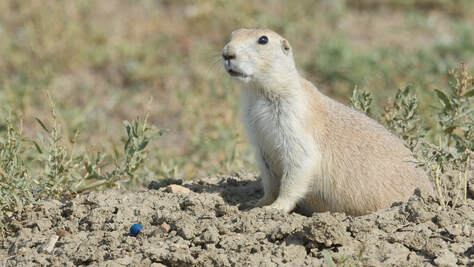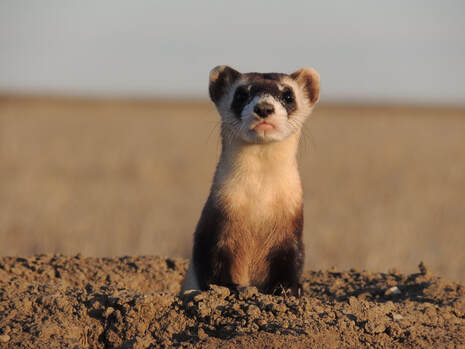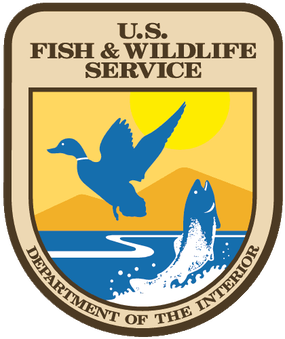Plague Management in Prairie-Dog Colonies
to Aid Recovery of Black-Footed Ferrets
to Aid Recovery of Black-Footed Ferrets
|
Black-footed ferrets were once thought to be extinct, but after discovering a single remnant population, a successful captive-breeding and reintroduction program was developed and implemented. However, despite the achievements of captive-breeding and reintroduction efforts, conservation of this rare mustelid currently faces a substantial challenge, specifically overcoming the widespread impacts of sylvatic plague. Sylvatic plague is an exotic disease that frequently results in drastic population declines of prairie dogs, and in turn, ferrets through not only loss of their primary prey, but also direct mortality through disease transmission. Developing effective and efficient techniques for managing the impacts of plague in ferrets and prairie dogs has been designated as one of the primary goals of the U.S. Fish and Wildlife Service for ferret recovery, as described in the Black-Footed Ferret Recovery Plan.
In collaboration with the World Wildlife Fund, the U.S. Fish and Wildlife Service, and the Black-footed Ferret Recovery Implementation Team, the primary goal of this project is to assist ferret recovery by enabling multi-site evaluations of plague management actions. Specifically, we aim to:
Each of these goals are expected to improve our understanding of plague and plague management techniques, thus contributing to the continued success of ferrets at reintroduction sites throughout western North America. |
Baits (blue ball) containing an oral vaccine for sylvatic plague for black-tailed prairie dogs are used for managing plague at ferret reintroduction sites. Photo © Conservation Media/World Wildlife Fund-US.
A black-footed ferret exits a prairie dog burrow. Photo © Kristy Bly/World Wildlife Fund.
|
INFORMATION-SHARING DATABASE
We have launched the Black-footed Ferret Information Repository (BFFIR). This database is currently limited in access to approved members of the Black-footed Ferret Recovery Implementation Team (BFFRIT). However, other requests for access may be considered on an individual basis. To view the BFFIR, please click here.
Project Partners
Copyright 2024 Wildlife Ecology Institute



